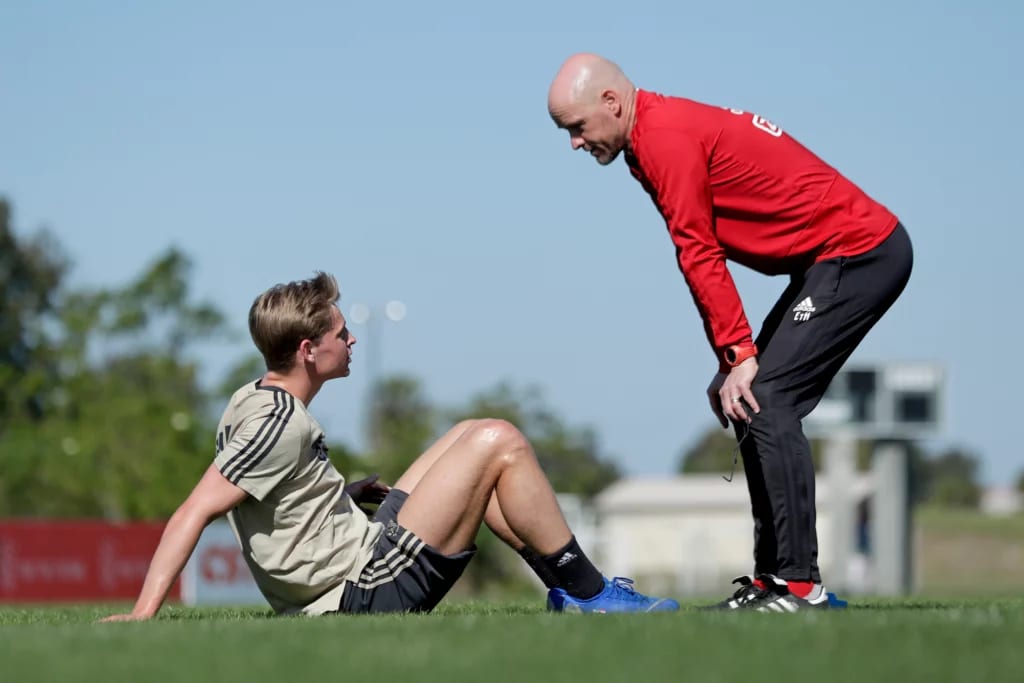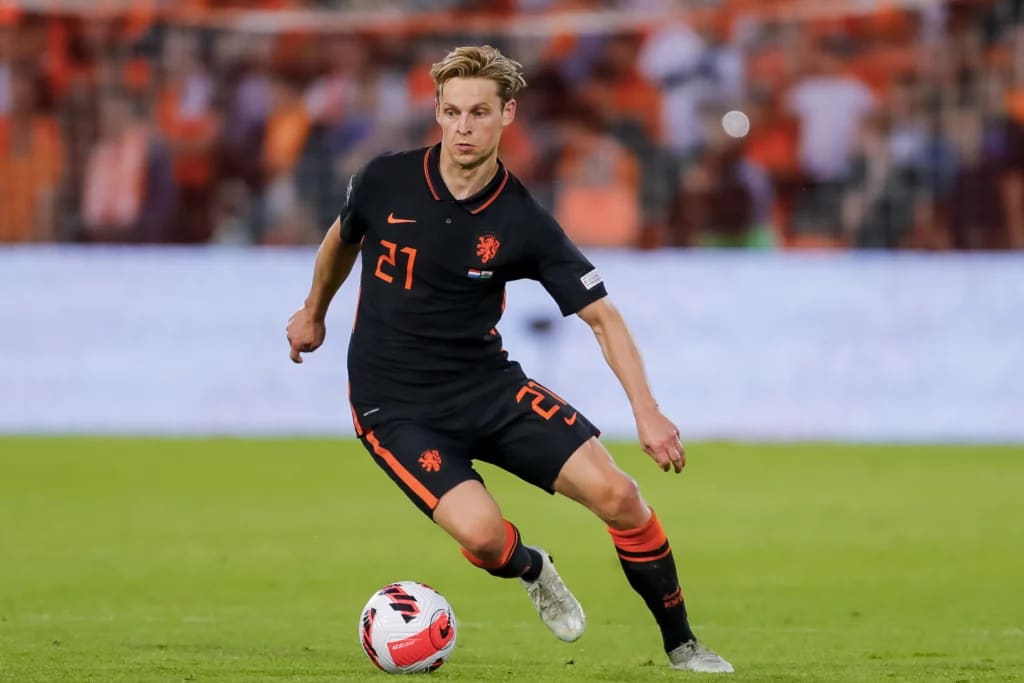Almost as soon as Erik ten Hag was named Manchester United’s new manager, Frenkie de Jong’s name started to appear in the transfer gossip column.
By all accounts, ten Hag is desperate for a reunion with his former Ajax midfielder at Old Trafford and has instructed his new employers to do everything possible to secure his top target.
That ten Hag has made signing de Jong from Barcelona such a priority says a lot about how he wants to transform United. The 52-year-old was hired to bring a more modern approach to Old Trafford and his pursuit of de Jong epitomises this change of tact.
De Jong will give ten Hag an ideological totem to point to, as he looks to impose new methods and ideas on the squad he has inherited.
De Jong will give ten Hag an ideological totem to point to, as he looks to impose new methods and ideas on the squad he has inherited.
In simple terms, de Jong is the complete modern midfielder. He has the technical ability you’d expect of someone who has passed through Ajax as a youngster, but also possesses the physicality to offer drive and energy. The latter will be crucial for the 25-year-old in the Premier League where the pace and tempo of matches is higher than in La Liga.
Possession
It’s in possession where de Jong would make the biggest difference for Manchester United. The Dutch international is exceptional at building attacking moves from a deep position and pushing his team higher up the pitch through his use of the ball.
Not since Paul Scholes’ retirement has United had a midfielder who can circulate the ball and progress possession as well as de Jong can.
His passing statistics across all distances are impressive: De Jong is in the 89th percentile for completed short passes, the 76th percentile for completed medium passes and the 96th percentile for completed long passes.
This variety makes him difficult to press and defend against. On top of this, de Jong is in the 81st percentile for progressive passes and the 92nd percentile for passes under pressure.
Manchester United’s midfield troubles have been the subject of discussion for years, but most focus on the lack of structure and protection offered to the back four by the players in front of them. Ten Hag sees this, but also a deficiency in possession.
Midfield maestro
This often results in a disconnect between United’s midfield and their attack. De Jong is being chased to address this.
Even when de Jong is unable to find a teammate with a pass, he is among the best at carrying possession himself. The 25-year-old is in the 96th percentile for progressive carrying distance per 90 minutes and the 95th percentile for progressive carries into the final third.
For context, Bruno Fernandes – seen as United’s primary midfield creator – ranks only in the 63rd percentile for the former and 70th percentile for the latter.
Going on the basis of how ten Hag used him at Ajax, de Jong might be given the responsibility of dropping in between the central defenders to take the ball forward should he sign for Manchester United.

This could help United maintain their defensive structure – Harry Maguire was frequently caught out of position last season after losing position high up the pitch.
Counter attack
Under Ole Gunnar Solskjaer, Manchester United frequently played on the counter attack while Ralf Rangnick primarily focused on what his team could do out of possession.
This will change dramatically now that ten Hag is at the helm and de Jong has been targeted with this philosophical overhaul in mind.
De Jong would bring an element of flexibility to United’s midfield. He is capable of playing as a number six in front of the back four, he is comfortable as a number eight in a double pivot and can operate as a left or right-sided midfielder in a central trio. This versatility would give ten Hag a lot of different tactical options.
Ten Hag must find a way to fit de Jong, should he sign, and Fernandes into the same midfield unit. This might push the new Manchester United manager towards a 4-2-3-1 shape in which he can deploy de Jong as part of a double pivot and Fernandes ahead of him, closer to the central striker.
One of the biggest issues United suffered from under Solskjaer was a lack of passing triangles and pattens of play in possession.
De Jong offers teammates angles wherever he is on the pitch, whether he is in a deeper role of carrying the ball higher up the pitch. Whether it’s through his own use of the ball or facilitating others, the Dutchman would make United a better team in possession.
Barcelona reportedly want a transfer fee of around €85m for de Jong, a player who started 30 out of 38 league fixtures for the Catalans last season, but the value to ten Hag as he remoulds Manchester United in his own image could be far greater.
There’s a reason their pursuit has dragged on for so long.

